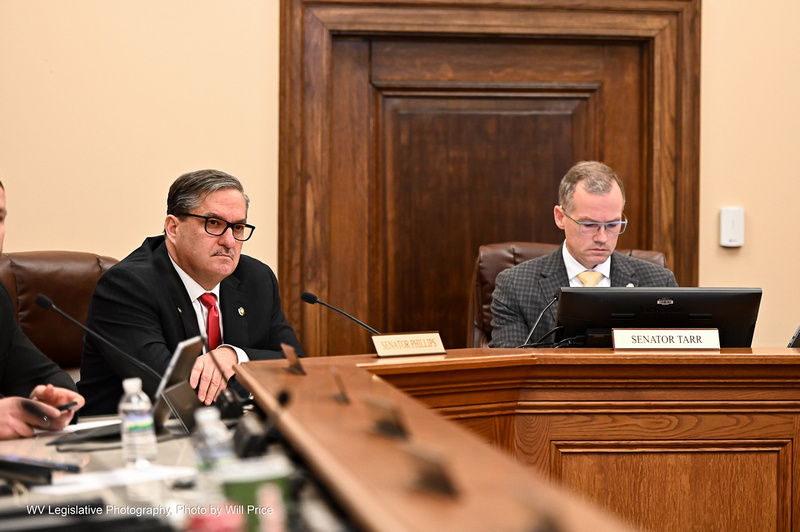Senators introduced and passed a compromise version of a tax cut bill, spotlighted by a personal income tax cut of a little more than 21 percent.
The Senate Finance Committee introduced the concept and approved the bill at a Saturday afternoon committee meeting that lasted only a few minutes. There was no discussion of an overall revenue impact, although a statement by the governor characterized it as $750 million.
Later in the afternoon, the full Senate suspended constitutional rules requiring bills to be read three consecutive days and voted overwhelmingly, 32-1, to pass the tax bill. The only vote against the bill was by Senator Mike Caputo, D-Marion. Again, there was hardly any discussion except for a basic explanation of how the tax cut would work.
The initial 21.25 percent income tax cut is a bit more than one backed by senators a few weeks ago and a bit less than one previously supported by the governor and delegates.

Gov. Jim Justice released a statement to say he likes the proposal.
“I am extremely happy that after weeks of negotiations with all parties we’ve been able to reach a deal with the House and Senate that will be the largest tax cut in West Virginia history,” Justice stated.
“It also puts us on a pathway toward the complete elimination of our personal income tax. It’s a win-win for all West Virginians and I couldn’t be more pleased with the outcome.”
The income tax cut, if passed by the full Legislature, could increase in a few years because of a formula serving as a trigger. It would measure general revenue collections in a fiscal year minus severance collections compared to 2019 as a base year. If collections are ahead of the base year, that would activate the trigger.
Reductions wouldn’t exceed 10 percent at a time. The trigger system would go into effect in 2024.
The revised bill also includes a personal property tax credit for vehicles. There’s also a 50 percent personal property tax break aimed at small businesses, which are refined through definitions in the bill. Also, there’s a tax credit for disabled veterans on personal income taxes on a homestead.

“We are happy to see a pathway emerge that will return dollars to hard-working West Virginians’ pockets. After years of fiscal responsibility, the right thing for policymakers to do is provide much needed relief to our citizens,” said Jason Huffman, state director of Americans for Prosperity-West Virginia, which has been lobbying for the reduction.
“This historic tax cut represents a good start. With this framework in place, we look forward to continuing to work with policymakers to provide West Virginians with additional transformational tax relief.”
Senators were at odds with the governor and delegates over taxes for the early part of the legislative session. Senate leaders said they wanted a tax cut but also expressed caution about how much the state could cut while also responsibly addressing expenses.
Right now, West Virginia is running a budget surplus of hundreds of millions of dollars. But that’s based on several factors, including high energy prices that have produced high-performing severance tax returns and the likely stimulus of federal dollars. Revenue projections have also been held artificially low, keeping the base budget under control but leading to more reliance on surplus spending.
Governor Justice’s top priority has been a 50 percent personal income tax reduction over three years. The House of Delegates overwhelmingly voted in favor of that proposal earlier in the legislative session.
A few weeks ago, senators introduced and passed a broader-based tax cut bill. The senators’ plan started with a 15 percent decrease in personal income tax.
Additional goals of that earlier Senate plan included elimination of the “marriage penalty” when filing taxes in West Virginia, a rebate for the payment of taxes on vehicles, a homestead real property tax rebate for 90- to 100-percent service-disabled military veterans and a 50 percent rebate for the payment of equipment and inventory taxes paid by West Virginia small businesses.

“The tax plan the Senate Finance committee passed today looks very similar to their last proposal in SB 424,” said Kelly Allen, executive director of the West Virginia Center for Budget and Policy think tank.
“It overwhelmingly benefits the wealthy and has concerning automatic triggers that send future revenue growth to more tax cuts regardless of what budget needs might emerge.”

